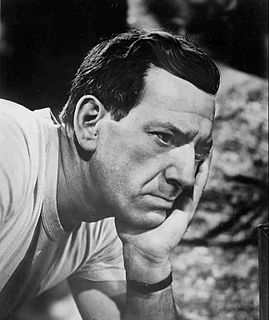A Quote by Stephen Henderson
Don't listen to some outside interpretation - do the scene as it makes sense to you and the other actor.
Related Quotes
The only tool we have as artists is selectivity. If you're a painter, you select the color, the lines, how severe they should be. As an actor you develop how angry you should be. You select how angry you should be. You listen to the other actor and then you react. In film, sometimes the other actor isn't even there. You have to play the scene. What I do is I call on my experience on the stage. I play the scene and I hope that I reach a certain level of integrity because that's what I learned on the stage.
When I started out as an actor, I thought, Here's what I have to say; how shall I say it? I began to understand that what I do in the scene is not as important as what happens between me and the other person. And listening is what lets it happen. It's almost always the other person who causes you to say what you say next. You don't have to figure out how you'll say it. You have to listen so simply, so innocently, that the other person brings about a change in you that makes you say it and informs the way you say it.
Sometimes a scene works and acting is the easiest thing in the world and you don't have to do much of anything - just enjoy yourself and listen to the other actor. When it doesn't work, then every actor has different ways of dealing with the impasse. Sometimes you use memories from the past. Whatever. It depends from job to job.


































